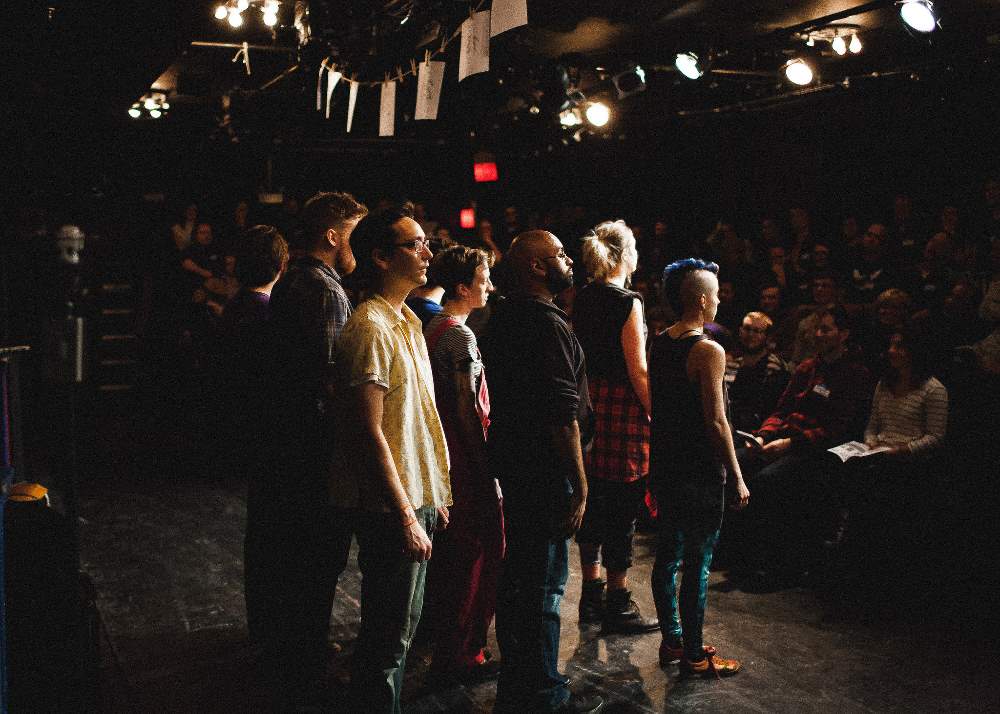CHICAGO: The Neo-Futurists have announced their 2015—16 season, which includes several new projects alongside its signature long-running production, Too Much Light Makes the Baby Go Blind. Among its new initiatives is a new-works residency called Neo-Lab, which will develop a play called Saturn Returns.
“Within the context of the Neo-Futurists’ long history of original work, Neo-Lab represents both an embrace of our most cherished artistic principles as well as an experimental departure from our practiced processes,” said co-artistic director Bilal Dardai in a statement. “The proposal alone for Saturn Returns gave our ensemble a moment to pause and reflect on our creative values when it comes to devised original work. As such, we hope to include the development of this project as a centerpiece for a more comprehensive discussion of process-based work within not only our theatre, but other theatres as well.”
Workshops and open houses for Saturn Returns will take place on Oct. 15 and again on Feb. 29, 2016. The work, created by Tif Harrison and written by co- artistic director Kurt Chiang, Lily Mooney, Kirsten Riiber, Andrew Tham, and Harrison, is an exploration of time, patience, and the vast expanse of the unknown universe. Over the next two years, the ensemble plans to build the project with audiences through intimate events, open dialogues, and interviews. Elisabeth Barnick will direct.
The season’s first full production will be Malic White and Molly Brennan’s Pop Waits (Feb. 11—March 12, 2016), a participatory “clown rock opera” in homage to both Iggy Pop and Tom Waits, featuring a live band.
Next is Jessica Anne’s Mike Mother (May 5—June 4, 2016), a collision of theatre, writing, and film inspired by Marsha Norman’s ‘night, Mother.
In addition to the popular TMLMTBGB, an ever-changing attempt to perform 30 plays in 60 minutes, the Neo-Futurists also plan The Arrow, a quarterly experimental workshop led by Chiang and Mooney, which invites multidisciplinary artists to explore writing in unexpected frameworks with four different ensembles throughout the year.
Throughout the season, the troupe will follow the progression of its two-minute plays, full-length productions, and new performance structures with a weekly podcast called Go! The podcast will also examine the lives of theatremakers and explores the facets of being a Neo-Futurist.


